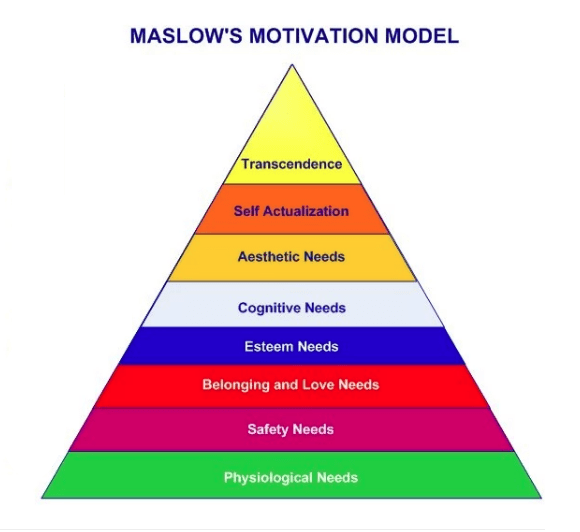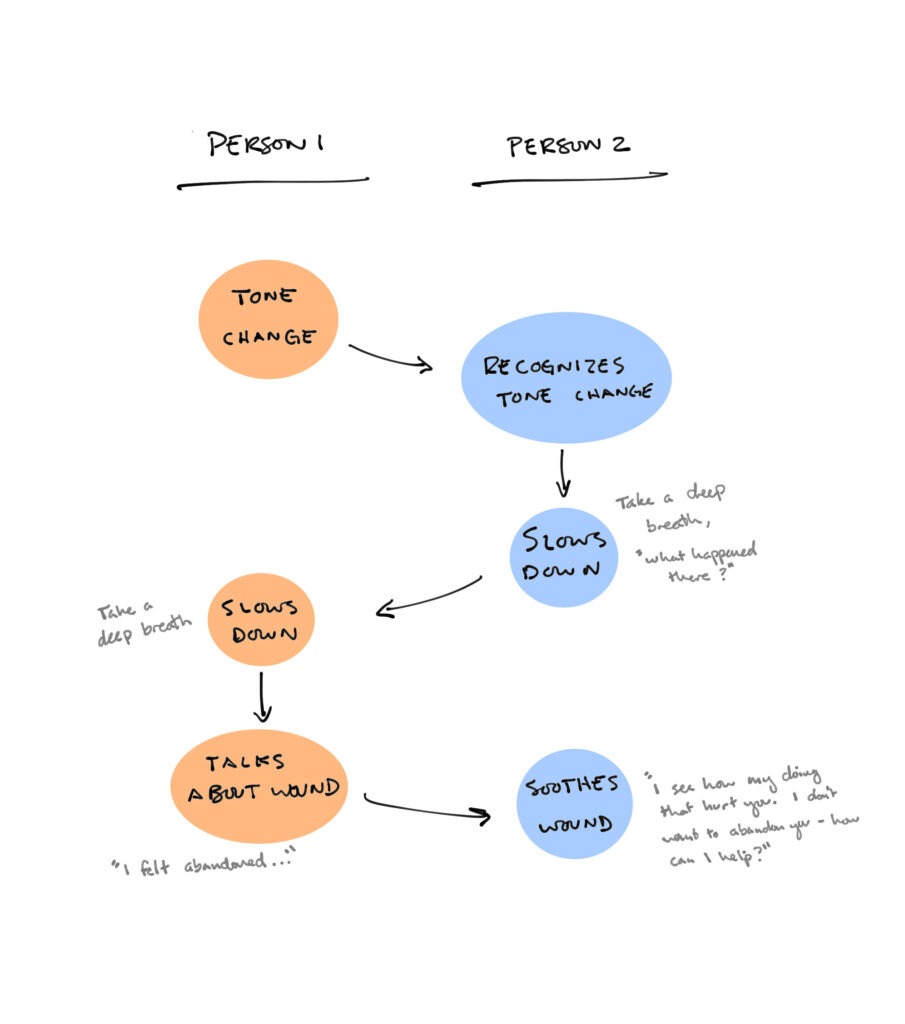Therapy at Home: Moving through Meaninglessness
During quarantine, many of us have felt not like ourselves, including feeling unproductive, lonely, bored, easily emotional, or lacking in meaning. To understand why this may be, we’re going to review Maslow’s hierarchy of needs.

Maslow theorized that we are initially motivated by the lowest or most basic need. As those needs are met, we move up the hierarchy to more complex needs. However, if a need is not met, the motivation for that need increases until it is met, and it will end up taking our focus away from higher levels.
Before we review these needs, take a moment and brainstorm what are the top things that are taking your energy right now, or maybe another way of phrasing it would be your top worries. We’ll use the list to see where on the hierarchy those worries fall.
Our first needs are physiological, such as food, shelter, and water. Many of us, I hope, are still doing ok here. The next one is safety, which focuses on stability, employment, finances, health, resources. I’m going to guess your list had a lot of these kinds of problems on it. Our resources have changed, our employment has changed, we may be in financial risk, and we may feel scared of getting sick.
The coronavirus has caused most of us to focus on this basic need. That means a lot of our energy and motivation will be on trying to resolve these issues. Hopefully we can take advantage of some of that motivation to resolve what we can in terms of reviewing finances and making smart hygiene choices. However, some of the issues we can’t resolve, like finding a cure or ending a shelter-in-place order, which means our motivation and focus will get stuck here. That also means we will have less motivation for needs higher up on the hierarchy.
The next need is love, belonging, friendship, and connection. This may be hard to access right now for some. We may find ourselves fighting with loved ones more often, or feeling like we are lonely and struggle to feel connected with others. You may not have as much motivation or energy to put into those relationships.
The next few are esteem, cognitive needs (meaning to feel curious, want to explore or learn), and aesthetic needs (meaning to appreciate beauty). This entails feeling good about ourselves, or feeling confident and strong. When we’re here, engaging in work or a preferred activity feels fun, freeing, and like it’s building you up. If we don’t have motivation to explore, grow, or work, it may be harder to get things done. That may lead to feeling stressed and incompetent, or bored and unfulfilled by those tasks that usually give you energy.
Lastly is self-actualization and transcendence, which involves seeking to be the best version of ourselves, or finding meaning in the world around us. This may include spiritual journeys or exploring questions of identity. Again, without as much energy or motivation to go here, you may feel disappointed in what feels like a lack of growth in these areas.
So what do we do about it?
If so much of our energy is now being diverted to feeling safe, and we can’t change a lot of what’s making us feel unsafe, how do we move forward?
Firstly, I would invite you to be kind to yourself. It’s ok to feel what you are feeling. I think that’s hard for many of us, because we have a certain standard of accomplishment that we hold ourselves to, and kindness can feel like weakness. I would challenge you to push back against that standard by remembering that this is a completely unprecedented event in your life. It’s ok to be upset, it’s ok to do less, and it’s ok to be kind to yourself.
The next thing I’m going to invite you to do is to find other ways of helping you feel safe. Remember when you were a kid, and you got scared, maybe from a nightmare? What did you seek? Again, take a moment and jot down some things you may have turned to.
When you’re looking at your list, maybe you wrote down the warm comfort of a blanket or favorite stuffed animal. Maybe it was a cup of hot cocoa and a favorite movie. A favorite song, smell, or taste. We are usually soothed by connecting with our five senses. One way of dealing with feeling unsafe would be to find a physical way of coping.
The other thing you probably did is you went to a safe person, like your parent or a sibling. Though love and belonging is the next need above safety, I think it’s worth putting in that extra effort to connect with the life-giving relationships in your life. Social support is a key way of coping in difficult times. This may not be the time to try and reconcile with a difficult family member, but it’s a great time to call friends and family who make you feel loved and safe, and for whom you can provide that in return.
Lastly, it’s important that we remind ourselves that this is not our reality forever. It can be easy to forget that these feelings will end, and so will this pandemic. Maybe write down a reminder somewhere you will see it – this too shall pass.
Maybe as I’ve reviewed these ideas today, you got stuck somewhere along the way. Maybe it was difficult to think of things that calm you, or you could only think of things that have some negative consequences attached, like emotional eating or substance use.
Maybe you struggled to get past that self-critical voice telling you to do more. Maybe you’ve noticed that the conflict in your relationships has gotten to be more than you can handle. If that’s you, reach out for therapy today. Yes, this will pass, but it doesn’t have to be so difficult, and you don’t have to go through it alone.
We’re all in this together. This too shall pass.








